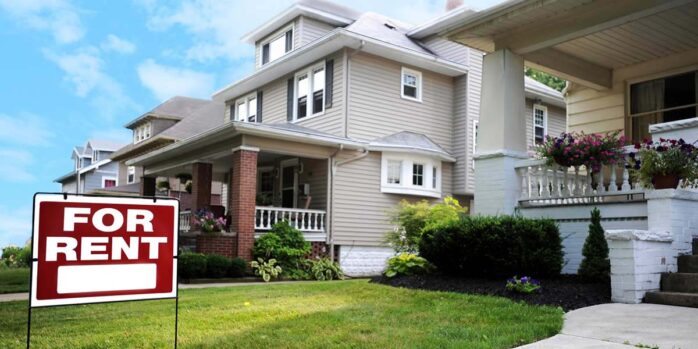
Remotely managing a short-term rental property is not easy, but it’s certainly not an impossible task with the right strategies. When you set up a solid business process for managing your short-term let, it will become easier to successfully manage the property from a distance and ensure that your income remains stable, and your guests are happy.
When guests book property to stay in short-term, they expect to get a clean home to stay in that is what they expected from viewing the listing. Today, guests also expect to get important information available to them when they arrive and they want to be easily able to check-in, which seems like a simple enough thing to achieve, but is often more complicated for people who are away from their property. Setting up a business process will make it easier for you to remotely manage your short-term let successfully.

No matter where you are, the most important thing when managing a short-term rental is to ensure that all your guests’ needs are attended to, and that guests are left happy and satisfied with their stay. To help you do this, Upperkey has some top tips for property owners to use no matter where they are in the world to ensure that the property is well-maintained, and guests get everything that they expect.
About Short-Term Lets
A short term rental refers to a property that is rented out for short periods of time. Most of the time, they are used for renting out to people who are staying in the area for a short period of time, such as those who are taking a holiday or on a business trip. When you offer short term lets considered for your property, you might be renting to families who want to stay in the area for a week or so for a holiday, or business professionals who need somewhere to stay while working in the area for a few weeks or months.
What is a long term let? On the other hand, a long-term let refers to a property that people stay in for longer periods of time; usually a let is considered to be long-term when there is a tenant or guest staying in it for six months or more. Long-term lets are more usually referred to when it comes to rental homes that tenants live in as their main home, but you can also offer a long-term let to people who need somewhere other than their main home to stay for a long period of time.

For the purpose of this article, we will mainly be focusing on short-term rental properties, but the advice can also be applied to some long-term rental properties in many situations.
Use Short-Term Rental Software
When you’re not in the local area, managing your business remotely can be challenging. However, the good news is that even if you are in a completely different part of the world, there is now lots of different PropTech software options available to help you automate things. You can find software like Guesty that allow you to easily take control of guest communication, manage bookings, and keep track of any changes with just a few swipes. This makes it easier to handle bookings, stay on top of guest communication, create invoices, and receive payments for bookings, and much more. When it comes to long-term rentals, however, you might be better off using individual landlord forms online like these rental application forms.
Allow Guests to Use Self-Check-In
One of the best ways to make sure that guests are able to access your property quickly when you are not there is to offer a self- check-in option, so that nobody needs to actually meet the guests to get them checked in when they arrive. With the growth of iRenting, where guests and tenants mainly use technology to find and rent the property, this is becoming an increasingly popular option for short-term rentals and there are several ways to do it including smart and electronic locks that you’ll provide an access code for, or a key lockbox that requires a PIN you will need to provide to guests before they arrive. You can also use a range of key management solutions such as Keynest to make it easier to manage key exchanges remotely. You can use these for both providing keys to guests and when providing keys to cleaners and other maintenance workers that will need to visit your property in between bookings.

Alternatively, you can hire somebody to be there to check your guests in when they arrive. This option may provide you with more peace of mind compared to offering self-check-in, but it is also often more expensive, and it’s important to hire somebody that you trust to be there with the key on time, otherwise you risk damaging the reputation of your short-term let and your business.
Compile Important Information for Guests When They Arrive
When guests arrive, they will usually expect to be provided with all the information that they need. Not only will they need to access any policies and guidelines for staying in the rental, such as check-in and check-out procedures, which are good to include in not only your rental listing but also in your welcome pack or guest book. A comprehensive welcome pack will ensure that guests are provided with all the important information that they expect when they arrive and will reduce their need to contact you with extra questions while they are staying.
Your welcome book should contain information about the local area. Mention any attractions and things to do nearby. For a nice touch, if possible, you could even find vouchers or money-off deals for these places and leave them in your welcome book for your guests to use. Provide them with information about local restaurants, pubs, car hire services, public transportation, taxis, and more. Finally, make sure that guests have the information that they’re going to want as soon as they arrive, like the Wi-Fi password and any troubleshooting tips for if they have issues with the internet connection. Ensure that your guest welcome pack is placed somewhere that is easy to find and highly visible like on the dining table or kitchen counter.
Work with Professional Cleaners

Your short-term rental property should be cleaned in between every visit ready for the next guest, and the best way to do this is to work with a professional cleaning company that specifically deals with this type of property. They will be able to make sure that all routine tasks like cleaning and disinfecting are taken care of after a guest leaves, while you can simply get on with your life from wherever you are. Another main benefit of working with a cleaning service that is set up to manage holiday rentals is that they will also take care of areas that might be overlooked by somebody who is not a professional cleaner, ensuring that all hard- to-reach areas or places that are easy to forget about are cleaned thoroughly.
Find Maintenance Companies You Can Trust
When you are managing a short-term holiday rental remotely, one of the most important things is to find maintenance companies that you can trust and rely on. When you are not there in person, you need to know that the people you have chosen to help you maintain your short-term let are ready to respond to any request any time of the day or night, so choose maintenance companies that offer a 24/7 service. Make sure that you have easy contact details for a wide range of different maintenance services including handyman, backup cleaners, plumber, electrician, pest control, and pool cleaners, if needed.
It’s important to bear in mind that it is not uncommon for maintenance issues in a property to arise at the worst time possible. But no matter what happens or what time of the day or night it occurs, guests do not expect to be left with the problem for any longer than necessary and will expect action to be taken immediately. While it might not be realistic to expect that a maintenance professional will be able to turn up straight away, working with companies that provide enough staff so that you can always rely on them to have somebody to send within a couple of hours at the most is crucial. Make sure that you have a way to be in constant communication with your guests to ensure that they are provided with updates on the maintenance and know what to expect. If you are looking for a reliable company to help you out, just take a look at Daisy property management reviews and you will be deciding quite quickly.
Making Sure Your Rental Property Runs Smoothly

Approaching your property as a business when you’re remote is key to making sure that it runs smoothly. To get started, you’ll need to consider all the essentials, like your Airbnb license number or Airbnb registration number if you’re renting the property out through this channel. It is also worth considering the Airbnb management cost or the cost for full property management from an alternative company. While it may be more expensive to hand over the responsibility for full management of your rental to another company, this offers more peace of mind and ensures that everything necessary is covered.
While managing a rental property from hundreds or thousands of miles away can be a little trickier, it’s certainly not impossible to achieve.











